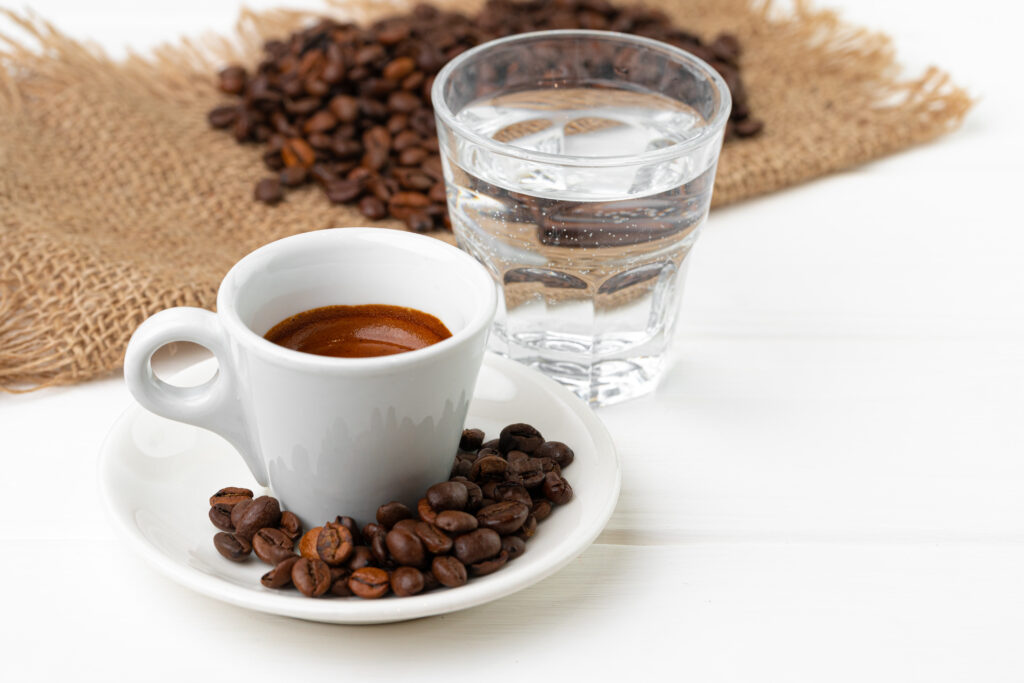Coffee is perhaps one of the most beloved beverages globally, and for coffee lovers, the taste and aroma of the coffee are everything. However, the flavor and aroma of coffee are not only determined by the type of beans used and the brewing method but also by the quality of water used. Water is a crucial ingredient in coffee, and the quality of water used can significantly impact the taste and aroma of the coffee.
Water Quality and Its Impact on Coffee
The water quality used to brew coffee can significantly impact the flavor and aroma of the coffee. Water is the primary ingredient in coffee, constituting about 98 percent of the beverage. Therefore, using clean, fresh water with the right mineral content is essential to achieve the desired flavor and aroma.
The mineral content of water is an essential factor affecting coffee’s taste. Water with high mineral content, such as hard water, can result in coffee with a bitter taste. On the other hand, water with low mineral content, such as soft water, can result in coffee with a flat taste. The ideal water for brewing coffee should have a balanced mineral content to enhance the flavor and aroma of the coffee.
Chlorine and other chemicals in water can also impact the taste of coffee. Chlorine is typically added to municipal water supplies to kill bacteria and other microorganisms. However, chlorine can react with the organic matter in coffee, resulting in a bitter taste. To prevent this, it’s essential to use filtered water or water that’s been allowed to sit for some time to let the chlorine dissipate.
The pH of water is another factor that can impact the taste of coffee. The ideal pH for brewing coffee is between 6.5 and 7.5. Water that’s too acidic or alkaline can produce coffee with a sour or bitter taste. Therefore, it is essential to test the pH of the water before brewing coffee.
How to Optimize Water Quality for Coffee
Now that we understand how water quality affects coffee’s flavor let’s explore how to optimize water quality for brewing coffee.
1. Use Filtered Water
Using filtered water is an easy way to improve the quality of water used for coffee. Filters can remove impurities and chemicals such as chlorine and other contaminants that can impact the taste of coffee.
2. Use Fresh Water
Using fresh water is crucial for brewing coffee. Water that’s been sitting for too long can become stale and affect the taste of coffee. Therefore, it is essential to use fresh water for every brew.
3. Test the Water
Testing the water for pH and mineral content can help you determine the ideal water for brewing coffee. You can use a water testing kit or send your water sample to a laboratory for testing.
4. Consider Mineral Content
As mentioned earlier, the mineral content of water is essential for brewing coffee. The ideal mineral content for coffee is between 150 to 200 mg/l. If your water has a low mineral content, you can add minerals such as calcium and magnesium to achieve the right balance.
Final Thoughts
Water quality is an essential factor affecting coffee’s flavor and aroma. Using clean, fresh water with the proper mineral content can enhance the taste and aroma of coffee. Therefore, it is essential to use filtered water, test the water for pH and mineral content, and consider the mineral content when brewing coffee. By optimizing water quality, you can achieve the perfect cup of coffee every time.
Get quality water for the best recipes with the help of New York WaterMaker. We are an innovative product that will change the world by allowing restaurants, pizzerias, bakeries, bagel stores, etc., and franchisors to replicate the specific type of water used in a key geographic location, such as New York City, San Francisco, or another city or town. With our help, businesses can ensure that their food tastes the same across multiple locations and regions. Get in touch with us today!

